- Home
- P. T. Deutermann
The Last Man Page 12
The Last Man Read online
Page 12
“If you would like, and if you’re ready to walk again, I can give you a tour of the major ruins. Unless, of course, you would rather go off on your own.”
“No, I’d appreciate a tour. I know that the complex up there is the storeroom for the northern palace, and that one is the so-called western palace, and that the siege ramp should be right behind those buildings up there, but beyond that—”
“Very well. If you are ready, then…”
“Just raring to go, Miss Ressner,” he said, “but let me check with hobble central.” In fact, he could barely make his legs function for the first twenty feet, a fact of which she seemed to be aware based on the slow pace of their walk. Big mistake, he thought, that sitting down for even a few minutes. He was in good physical shape, but a twelve-hundred-foot climb up a forty-degree slope under the fierce Judaean sun was still a major expenditure of muscle power. He would definitely not volunteer for any walk down the damn hill.
He shifted mental gears and began to focus on his real reason for being here. He took note of the slope of the slate-hard ground as they walked up toward the northern end of the fortress, upon which stood the curtain wall, and behind that, the remains of Herod’s elaborate northern palace complex. If Adrian’s theory was correct, what he was looking for would lie behind them, in the vicinity of that eastern gate, because that was the point toward which any surface rainwater would run down whenever it chanced to rain on the mountain.
The view beyond the reduced casemate walls was stupendous. They could see for at least twenty miles in every direction except west, where the bare Judaean hills were silhouetted against glare-drenched metallic sky. They entered the northern palace ruins through a narrow gate cut through reconstructed man-high stone walls. She explained that the maze of large rooms immediately in front of them had been storerooms for the palace-villa complex, containing enough grain, oil, and wine for several years’ survival on the mountain. The rooms immediately beyond the storeroom complex were the public rooms of the palace—an audience chamber, offices for officials, and a living area for palace functionaries. David knew from his studies that the northern palace complex occupied nearly one hundred thousand square feet.
Beyond the ruins of the main storehouse buildings they came out onto a courtyard area that provided the most spectacular view from the mountain. Standing in the courtyard was like standing in the bows of a very large ship. On either side of this northern point of the mountain, the cliffs dropped away over a thousand vertical feet to the desert floor. At the very point of the bow was a low stone wall, over which could be seen the remains of the ornately terraced palaces below, accessible by stone stairways cut into the living rock on the left-hand side. Here King Herod had carved two notches into the descending spine of the mountain and erected what looked like a cascade of gardens, baths, open terraces, and porticoes that dropped down a few hundred feet from the summit plateau. The view from the terraces would have been magnificent and utterly private, offering cool breezes to ward off the oppressive desert heat rising from the bare, baking rocks far below.
“Can we go down there?” David asked after a few minutes of staring at the view.
“Not today,” she replied, looking around as if to see if some of the other people standing at the wall were eavesdropping. “I must make arrangements to get through these gates. The villa terraces are kept locked away from the general public—the steps down are not safe, and there are some rare frescoes and mosaics down there we wish to preserve. Tomorrow perhaps.”
“The main cisterns are down there to the left, under the terraces, aren’t they? I seem to remember reading about how Herod’s engineers made the water flow uphill.”
She smiled behind the mirrored sunglasses. “An illusion. Not exactly uphill, either. We will go down the siege ramp, and I will show you how they diverted water from Wadi Metsadá into the cisterns.”
“One of the historians said they had three years’ supply of water up here; the cisterns must be enormous.”
“That they are. The largest of the three main cisterns can hold one hundred forty thousand cubic meters of water. They are just great big holes in the rock now, of course. Like cavities in a tooth. There are more, smaller cisterns along the rim. Mostly on the south and eastern side. One big one. Again, all empty holes in the rock.”
“Yes, of course. It looks like there’s been a good deal of reconstruction done up here,” he said, changing the subject. The cisterns were vital to his objective, but he must not attract her attention to them with too many questions. Especially since he already knew all the facts she was quietly describing. Be impressed, he said to himself. Drop some oohs and ahhs.
They spent the next two hours walking through the remains of the western palace, which the archaeologists thought might have predated the more luxurious northern palace. The palaces had been reconstructed only up to the point of piling the wall rocks back up to the height of five or six feet, enough to show the overall scope. Of roofs, audience rooms, and Roman-style baths there were only outlines. In the intense white sunlight, the stones gleamed with age, and David felt like he was walking through the bones of some enormous ossified museum. Judith pointed out the outlines of the Byzantine-era church and the small monastery and noted that the time sequences had a lot to do with the scale of the ruins. They walked back over to the parallel lines of the casemate walls, which on the western rim were barely two to three feet high. They looked down into the deep ravine four hundred feet below the western rim, where they could see the sloping ramp of sand and stone the Romans had used to finally defeat the fortress’s natural defenses. The ramp had eroded over the intervening span of nearly two thousand years, but the core was still there, pointed precisely up from the other side of the ravine at a forty-five-degree angle, like some enormous stake still stuck in the heart of the Jews’ final bastion.
“Amazing, it’s still here, after all these years.”
“Large things endure in the Judaean desert,” she observed. “The ruins up here were jumbled, but everything described by Josephus in the first century was basically still here when Yadin came digging.”
“What do you mean jumbled? By the battle?”
“Not exactly. By time and occupation. Herod used the mountain until 4 B.C. His son Antipater used it into the Roman provincial days. Then it fell into disuse, with only a small Roman garrison stationed up here, perhaps a demicohort. They occupied only a part of the buildings, and probably took materials from other parts to furnish the place as they wanted it. When the Kanna’im took it from them in A.D. 66, they did the same thing: rearranged buildings, closed off various parts of the palaces to make the mountain more defensible, and strengthened the casemate walls. Once the siege began, the Romans used artillery, you know, ballistae?”
“Yes, I’ve studied their weaponry. Mobile catapults throwing big round rocks, two-, three-hundred-pounders, against defensive masonry. Pretty damned effective.”
“It wasn’t effective here until they built the siege ramp and brought a siege tower up within range of the top. Then it must have been devastating. Yadin found several dozen ballistae stones embedded throughout the ruins. Once the Romans could get the catapults and a battering ram within range, it was the beginning of the end.”
“Not quite the end, though, right? The Zealots tore down the big wooden beams from the palace structure and built a bulwark of sand and wooden beams on the outside of the walls, which cushioned the impact of the ram.”
“Very good. You have done your research. Then, in the final attack, the Romans came up the ramp with Greek fire and set the wooden beams afire.”
“Yeah, but the wind changed halfway through the attack, and the fire blew back onto the siege tower, setting it afire, driving the Romans off.”
“And—?“
“And then when nightfall came, the wind changed again, this time driving the fire back into the walls, consuming the beams. That’s when the defenders knew.”
“Yes. Without the c
asemate walls, the Tenth Legion would swarm over the rim at dawn and overwhelm them by sheer numbers. There were nine hundred and sixty defenders, according to Josephus, but probably more than half of that number were women and children. We estimate the Romans had between three and five thousand. Look there, and you can see the main Roman camp.”
David could see clearly the outlines of the Roman headquarters camp, a precise military square drawn on the plateau across the western ravine, almost within a long arrow shot of where he stood. He knew there were other camps surrounding the mountain, and that the Romans had connected all the camps with a circumvallation to seal their objective area. Oblivious to the small knots of tourists climbing through the rocks and ruins, they both stood in silence on the ruined casemate wall, looking down into the deep ravine, thinking their own thoughts about that final night and what these amazing people had done. Finally Judith glanced at her watch.
“It’s going on two o’clock,” she said. “We should go down to the tourist center now and have a meal before it closes. I need to talk to the security people before they go home, about tomorrow.”
“Great idea.” David realized suddenly he was very hungry. He had been sufficiently absorbed by the fortress and its sanguinary history to have been paying no attention to the time. “Join me in a stroll back down the Serpent Path?” he quipped.
“No way, Mr. Hall,” she said, but there was a much friendlier note in the “mister” term.
The ride down in the cable car gave them another stunning view of the eastern wall of the mountain, where David could see the dusty, tortuous footpath he had climbed that morning. It was now partly in shadow as the sun dipped toward the Mediterranean beyond the Judaean hills. The ramp, he thought. The ramp will have to be my route. Tomorrow I have to get her to let me hike back down to the center from behind the fortress. Go down the siege ramp and walk back around the southwestern corner of the mountain to the visitors center. I have to know how long that takes.
The cable car groaned and clanked as it settled into its lattice structure above the visitors center. The parking lot was about half full of tour buses and cars, and there were people still waiting to go up.
They went back to the hostel briefly to clean up and made it into the restaurant by two thirty. The food was a mixture of Arabic and Israeli fare. David had what Judith had, willing to eat a whole goat by that point, and then finding out that he was doing so. Judith reminded him to stock up on some fruit, bread, and more water when the waiter announced that the place was closing for cleanup. By that time the tourists had thinned considerably, and the security guards in the center were getting a head count over the radio from their counterparts up on the mountain.
“How do they make sure everyone’s off the mountain?” David asked.
“There is a guard in the cable car. He tells the tourists that the last cable car leaves at five; anyone not down by then has to walk down the Serpent Path with the guards.”
“That ought to do it. So the guards actually walk down after the last cable car?’
“Yes, they do. It’s a fitness requirement, and there might be someone stranded on the path who is too tired to continue. As you can see, the path is in shadow by late afternoon, so the observation point can’t see it. Down is actually harder than going up, I’m told.”
David nodded absently and then looked around to find that observation point. After a few minutes, he realized that it must be on top of the cable-car landing. Casually, he looked. There was a tiny room up there, more like a pillbox, with slotted windows that had a panoramic view of the mountain. He wanted to ask if it was manned at night, but that would have been pushing it. He thought he saw a spotting scope sticking out of one of the slots. He still could not figure out where the security people were based. There must be an army camp nearby. Perhaps up the road at Ein Gedi; he had seen army vehicles there, but in Israel there were army vehicles everywhere. He made a show of looking at his watch.
“I think I’m going to call it a day,” he said, stretching. “My legs are informing me that there’s a wheelchair in my future if I don’t lie down pretty soon, and I have some notes I want to get down on paper. Eight o’clock tomorrow okay with you?”
“That will be fine. There is usually someone here by then so you can get a coffee.”
“Great. Well. Good evening, then. Thanks for the tour.”
“Yes, Mr. Hall. Good evening.”
He walked back through the tourist center lobby to the hallway leading to the hostel rooms before remembering to get some water and snack food. When he had acquired his supplies, he saw that she was still sitting in the restaurant, pensively now, looking out the big picture windows.
9
It was full dark when David’s wristwatch alarm went off. He groaned and turned over in the uncomfortably small bed and pushed the dial light: 10:00 P.M. He sat up and swung his aching legs over the side, shivering in the sudden cold. As his eyes adjusted, he could see starlight coming in from the single window, but no moon. He shook the mental cobwebs out of his head and recalled the moonrise data: This was Tuesday, so there would be a quarter moon, waxing, at around three thirty. Tonight it wouldn’t matter that much. For the next two nights it might. He yawned, got up, and slipped into dark corduroy pants, a dark red flannel shirt, thick socks and hiking boots, and his black windbreaker. He let himself quietly out the door and went down to the bathrooms. The hostel was silent; to his knowledge, no one else was staying here except Judith, and she was berthed upstairs, sound asleep. He hoped.
He’d had no trouble going to sleep. The combination of some residual jet lag disturbance, a carbo-load meal, and the climb up the mountain had sent him into a deep sleep as soon as he hit the rack. The only problem was that he was too long for the bed. His feet had hung over the end of the mattress, a detail that bothered him for about ten seconds.
Leaving the bathroom, he walked quietly down the hall to the fire door on the south side of the building, away from the hallway that led into the tourist center lobby. He checked for alarms, but there didn’t seem to be any, just a standard bar handle that allowed someone to exit from the building but not to enter. He wedged a small wad of wet toilet paper into the strike-plate hole to keep the door from locking behind him and stepped out into the desert night. There was a stunning canopy of stars overhead, glittering with that unusual brilliance found only in the desert or on high mountains. He shivered again; it was colder than he had expected.
Okay, he thought. First order of business: See if that security observation checkpoint is still manned at night. He walked around to the back of the two-story hostel building, his boots crunching quietly in the sand. Even in the cold night air the stink from the bromine flats a half mile away was strong enough to annoy him. He thought he could see steam clouds rising down on the salt flats from some geothermal pool. He walked across the back of the hostel, past darkened windows, including his own, and paused at the corner. From that point, he was almost under one of the legs of the cable-car suspension towers and in deep shadow. He could see the back and bottom of the observation box but not the window slits. Have to get higher.
He turned around and walked diagonally away from the corner and up across the slope of rocks and sand behind the hostel building. As he climbed up the hill he suddenly realized that one window on the second floor had a light on. He crouched down on the hillside, about fifty feet away from the back of the building. Could she see him from in there? Probably not. With her light on, she should be night-blind looking into the darkness of the hillside. He was about to continue up the hill when she passed in front of the window, studying some papers in her hand. She was wearing a shirt and what looked like white bikini underwear. Even at this distance there was absolutely nothing wrong with those legs, he mused. Too bad she had taken herself out of play; he could understand the anguish of the Shot-downs.
He turned away and continued up the hill, reaching a low ridge that was about level with the roof of the hostel building. Th
ere were some large boulders along the ridge, and he used these for cover as he worked his way back toward the fortress end of the tourist center building. From this elevation he had a clear view of the observation box. The view-ports appeared to be completely dark. He sat down on a flat rock in the shadow of an adjacent boulder and waited. Damn near every male in this country was a smoker, it seemed, so if there was someone in there, he would eventually see a match or lighter flare. Up on the hillside, the stink of the Dead Sea was less evident. He took a deep breath of the cold desert air, which was so pure he could almost taste it. A heavier jacket would not have been unwelcome, but later, when he went up the mountain, the light jacket would be more practical.
He looked over at Judith’s window again, but now it was dark. Good. He did not need her coming downstairs to check on him. Then he smiled in the darkness; the thought of that sad woman coming downstairs and knocking on a strange man’s door at night was laughable. He watched the observation box and reviewed his plan. Tomorrow she would tour him around the rest of the fortress: the terrace palace ruins, the big cisterns under the northwestern palisade walls, the siege ramp, and possibly the Roman camp to the west of the mountain. He wanted the camp to be last, because then he wanted to walk down the wadis that ran down along the west and south sides of the mountain, to see how long that took. Something scrabbled by in the sand beneath his feet, and he jerked his feet off the ground, but whatever it was disappeared. He was pretty sure that reptiles would be immobilized by this cold night air, but the scorpions were probably out hunting.
He needed to arrange the day so that he got back to the tourist center at about the same time they had returned today, three, three thirty. Get a meal, replenish water, go to bed, and get up around eleven. Maybe earlier, depending on how long the walk down the wadis took. Add a half hour because he would be climbing back up, two hours’ stay time on the top, time to get back down an hour before false dawn. So ten.

 The Nugget
The Nugget The Hooligans
The Hooligans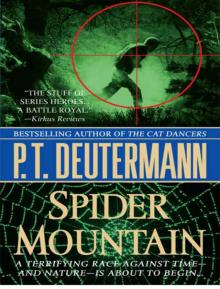 SPIDER MOUNTAIN
SPIDER MOUNTAIN![Cold Frame [retail] Read online](http://i1.bookreadfree.com/i/03/19/cold_frame_retail_preview.jpg) Cold Frame [retail]
Cold Frame [retail] Sweepers
Sweepers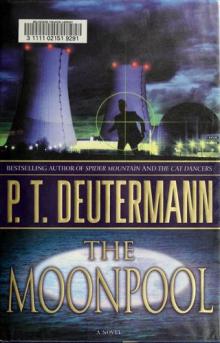 Cam - 03 - The Moonpool
Cam - 03 - The Moonpool Trial by Fire
Trial by Fire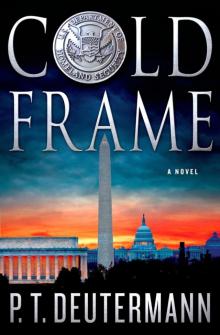 Cold Frame
Cold Frame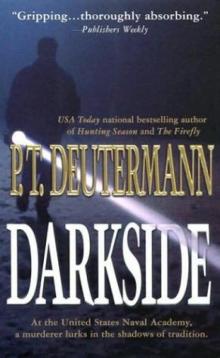 Darkside
Darkside Cam - 04 - Nightwalkers
Cam - 04 - Nightwalkers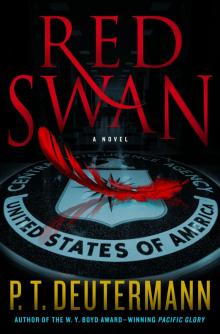 Red Swan
Red Swan The Commodore
The Commodore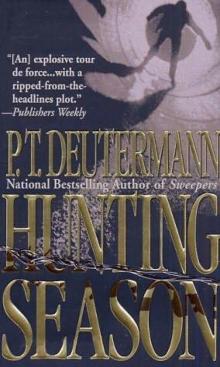 Hunting Season
Hunting Season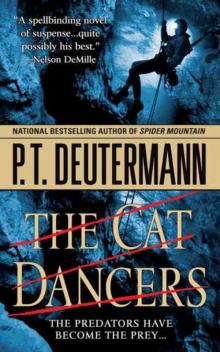 The Cat Dancers
The Cat Dancers Scorpion in the Sea
Scorpion in the Sea The Edge of Honor
The Edge of Honor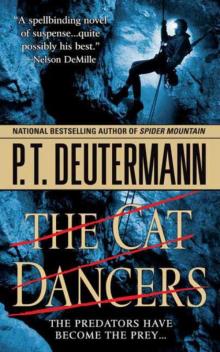 The Cat Dancers cr-1
The Cat Dancers cr-1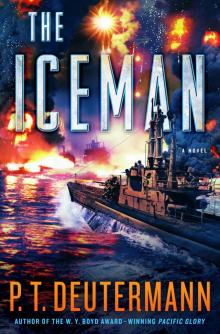 The Iceman
The Iceman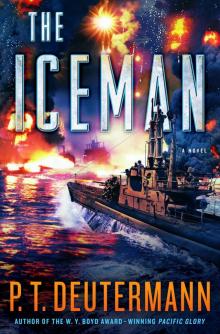 The Iceman_A Novel
The Iceman_A Novel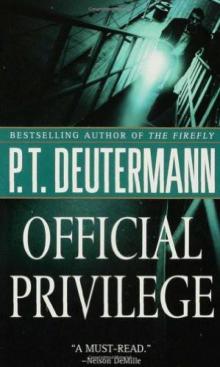 Official Privilege
Official Privilege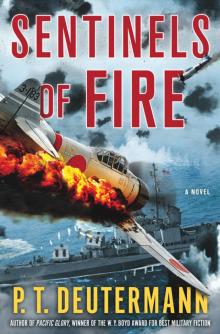 Sentinels of Fire
Sentinels of Fire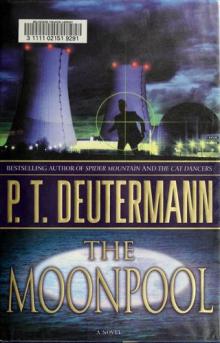 The Moonpool cr-3
The Moonpool cr-3 Nightwalkers cr-4
Nightwalkers cr-4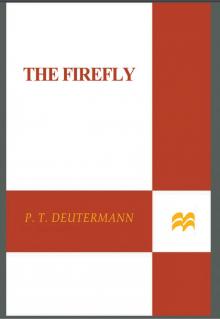 The Firefly
The Firefly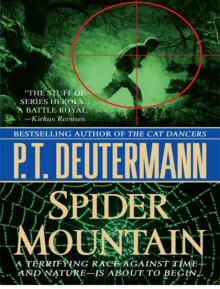 Spider mountain cr-2
Spider mountain cr-2 Pacific Glory
Pacific Glory The Last Man
The Last Man